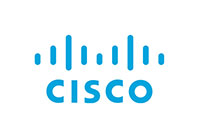The Introducing Automation for Cisco Solutions (CSAU) v1.2 course gives you a broad overview of network automation skills. Through a combination of lecture and hands-on labs, you will learn the fundamentals of automation such as working on model-driven programmability solutions with Representational State Transfer Configuration Protocol (RESTCONF) and Network Configuration Protocol (NETCONF) protocols. The course also covers data formats and types, including Extensible Markup Language (XML), JavaScript Object Notation (JSON), Yaml Ain’t Markup Language (YAML), and Yet Another Next Generation (YANG), and their value in network automation, along with DevOps tools such as Ansible and Git.
This course is a requirement prior to enrolling in professional-level automation courses and exams because it provides crucial foundational knowledge essential to success:
- Implementing Automation for Cisco Enterprise Solutions (ENAUI)
- Implementing Automation for Cisco Data Center Solutions (DCAUI)
- Implementing Automation for Cisco Security Solutions (SAUI)
- Implementing Automation for Cisco Service Provider Solutions (SPAUI)
- Implementing Automation for Cisco Collaboration Solutions (CLAUI)






